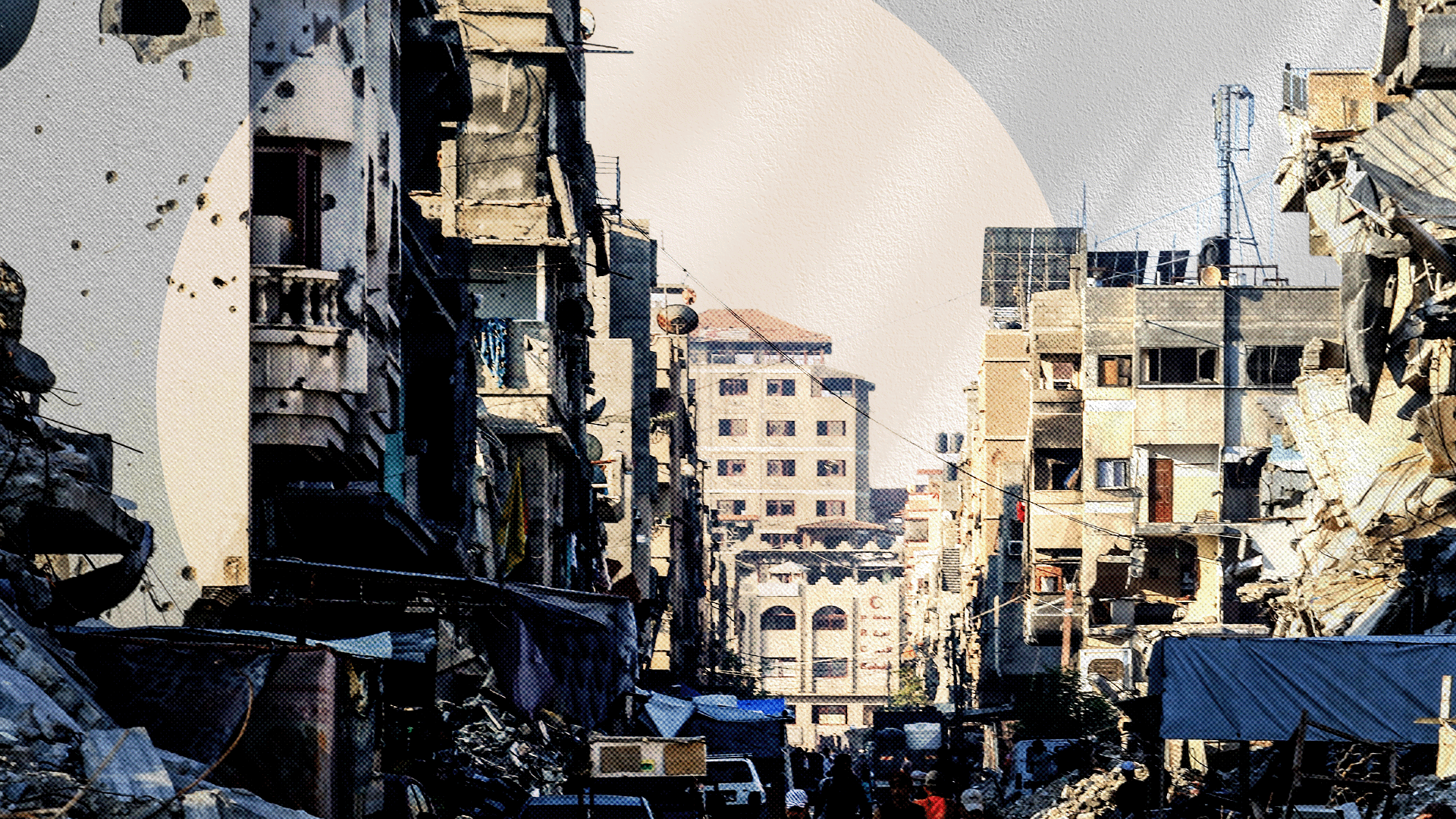Israel-Gaza ceasefire holding despite rocket fire
- Published
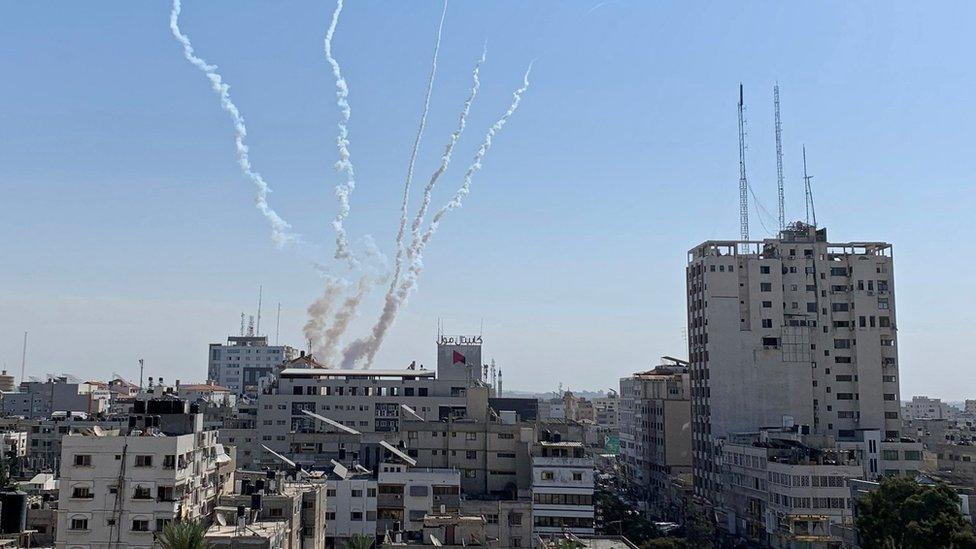
Five rockets were launched from Gaza hours after the ceasefire
A ceasefire between Israel and militants in Gaza appears to be holding, despite the launch of several rockets hours after it took effect.
The truce ended two days of intense fighting in which militants fired some 450 rockets towards Israel and Israeli aircraft carried out waves of strikes.
Early on Thursday, a family of eight were killed in an air strike in Gaza.
The fighting left 34 Palestinians dead and 111 injured in total, while 63 Israelis needed medical treatment.
The Israel Defense Forces (IDF) said 25 of the Palestinian fatalities were militants.
The escalation began on Tuesday when a senior commander of Palestinian Islamic Jihad (PIJ), Baha Abu al-Ata, and his wife were killed in an Israeli air strike.
The Israeli prime minister said Abu al-Ata was "responsible for most of the terror attacks in the last year from the Gaza Strip" and called him a "ticking bomb".
Gaza militants retaliated with rocket fire - then Israel responded with further air strikes
PIJ spokesman Musab al-Buraim said early on Thursday that it had agreed to a ceasefire brokered by Egypt after Israel was "forced to accept the conditions set by the Palestinian resistance".
Those conditions were to stop "assassination operations" and the use of live fire against protesters near the Gaza border fence, and to start implementing steps to end the blockade of Gaza, he added.
Israel did not publicly confirm the ceasefire, but Foreign Minister Israel Katz told Army Radio that "quiet will be answered with quiet".
He also said he considered it a "matter of success" that the dominant militant group in Gaza, Hamas, had not been involved in the hostilities.
Public Security Minister Gilad Erdan denied any concessions had been made to PIJ, tweeting that the group "wanted a ceasefire and it received no commitments in exchange".
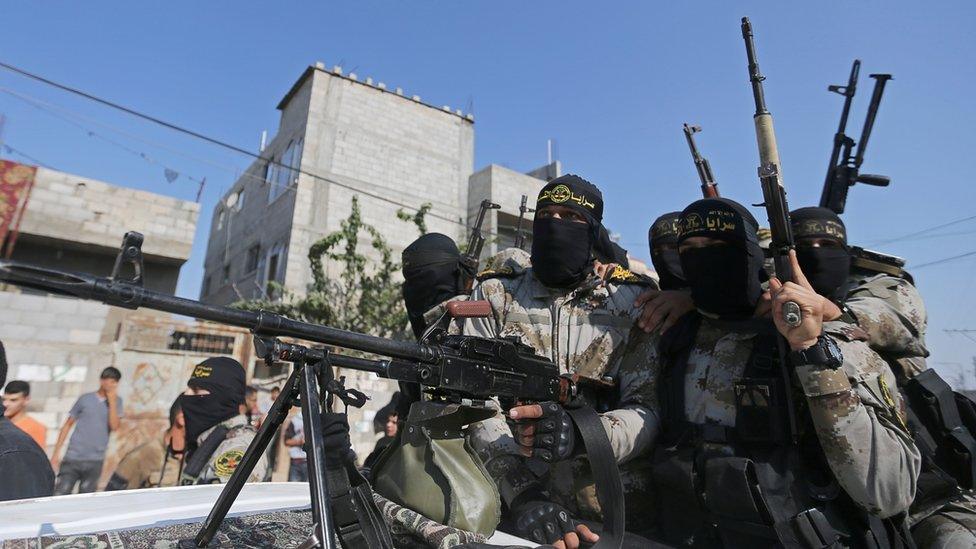
Palestinian Islamic Jihad said it had forced Israeli to accept conditions for the ceasefire
IDF Spokesman Brig Gen Hidai Zilberman said its operation in Gaza, dubbed "Black Belt", had achieved all of its objectives.
"With a combination of military personnel from a variety of units who specialize in SIGINT [signals intelligence], HUMINT [human intelligence], we were able to attack cells and close the circle against targets very quickly. That's what killed 25 terrorists who were in the midst of carrying out hostile activity," he added.
UN Middle East peace envoy Nickolay Mladenov said both the UN and Egypt had "worked hard to prevent the most dangerous escalation in and around Gaza from leading to war" and called on all sides to "show maximum restraint".
Allow X content?
This article contains content provided by X. We ask for your permission before anything is loaded, as they may be using cookies and other technologies. You may want to read X’s cookie policy, external and privacy policy, external before accepting. To view this content choose ‘accept and continue’.

However, five rockets were launched from Gaza about five hours after the ceasefire came into effect, the IDF said. Two were intercepted by the Iron Dome air defence system.
There were no immediate reports of any injuries or damage.
In the late afternoon, rocket alert sirens sounded in Israeli communities near the Gaza border and the IDF said another rocket was shot down.
Meanwhile, Gaza's health ministry said eight members of the Abu Malhous family, including five children and two women, were killed in an Israeli air strike on a house in Deir al-Balah, in central Gaza, before dawn on Thursday.
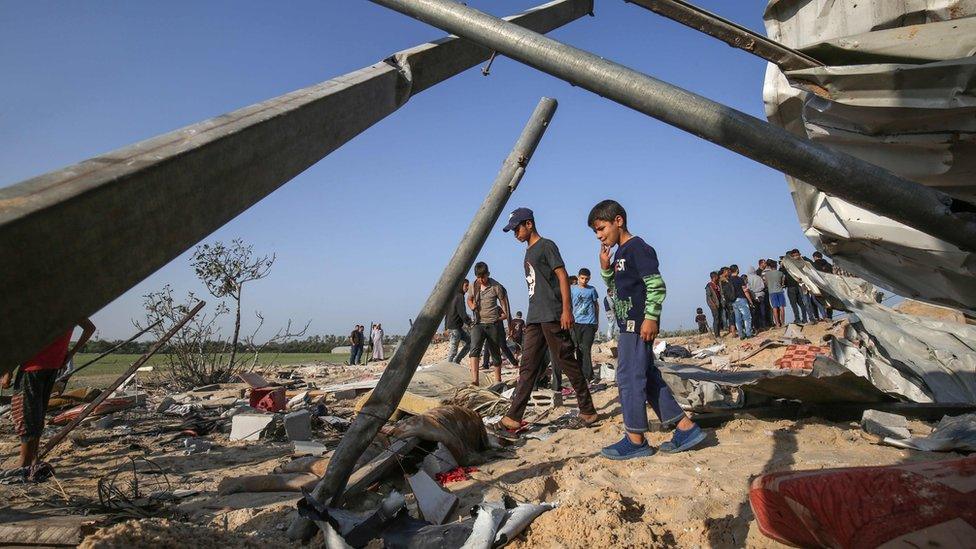
The Israeli military said the deadly air strike in Deir al-Balah had targeted a militant commander
The ministry said the dead were all civilians. But the IDF insisted that the head of the family, Rasmi Abu Malhous, was a commander of a PIJ rocket-launching unit.
"He was an Islamic Jihad commander and he, like many others, had the tactic of hiding ammunition and military infrastructure in their own residence," spokesman Lt Col Jonathan Conricus told AFP news agency. "Of course we try always to minimise the amount of non-combatants killed or injured."
A neighbour, Mohammed Mazro, disputed the IDF's account.
"They were children, civilians, not militants and they have nothing to do with politics," he told AFP. "They were innocent people, asleep. We were shocked by four rockets landing on the tin house, this is not normal."

- Published24 June 2019
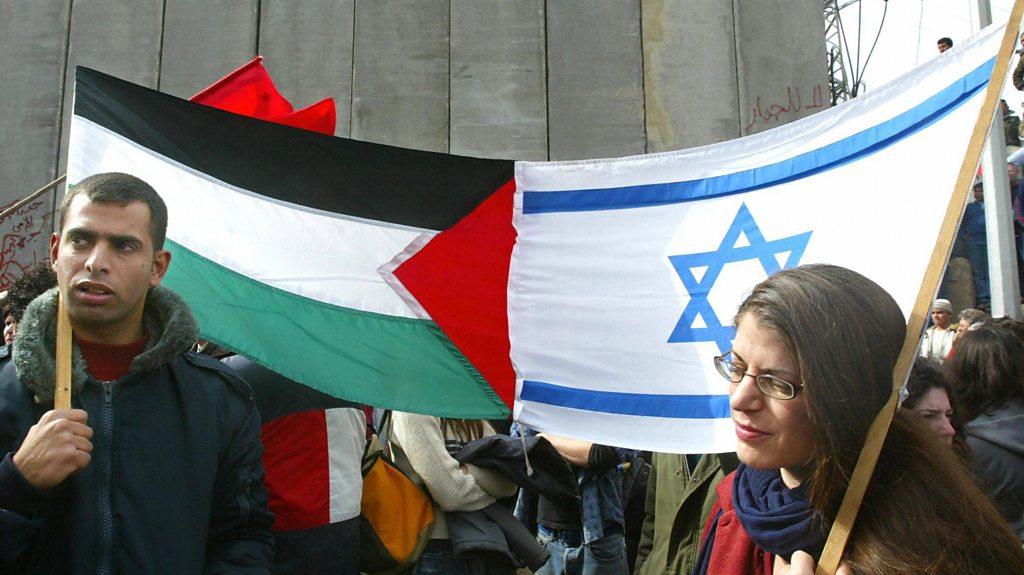
- Published16 January
